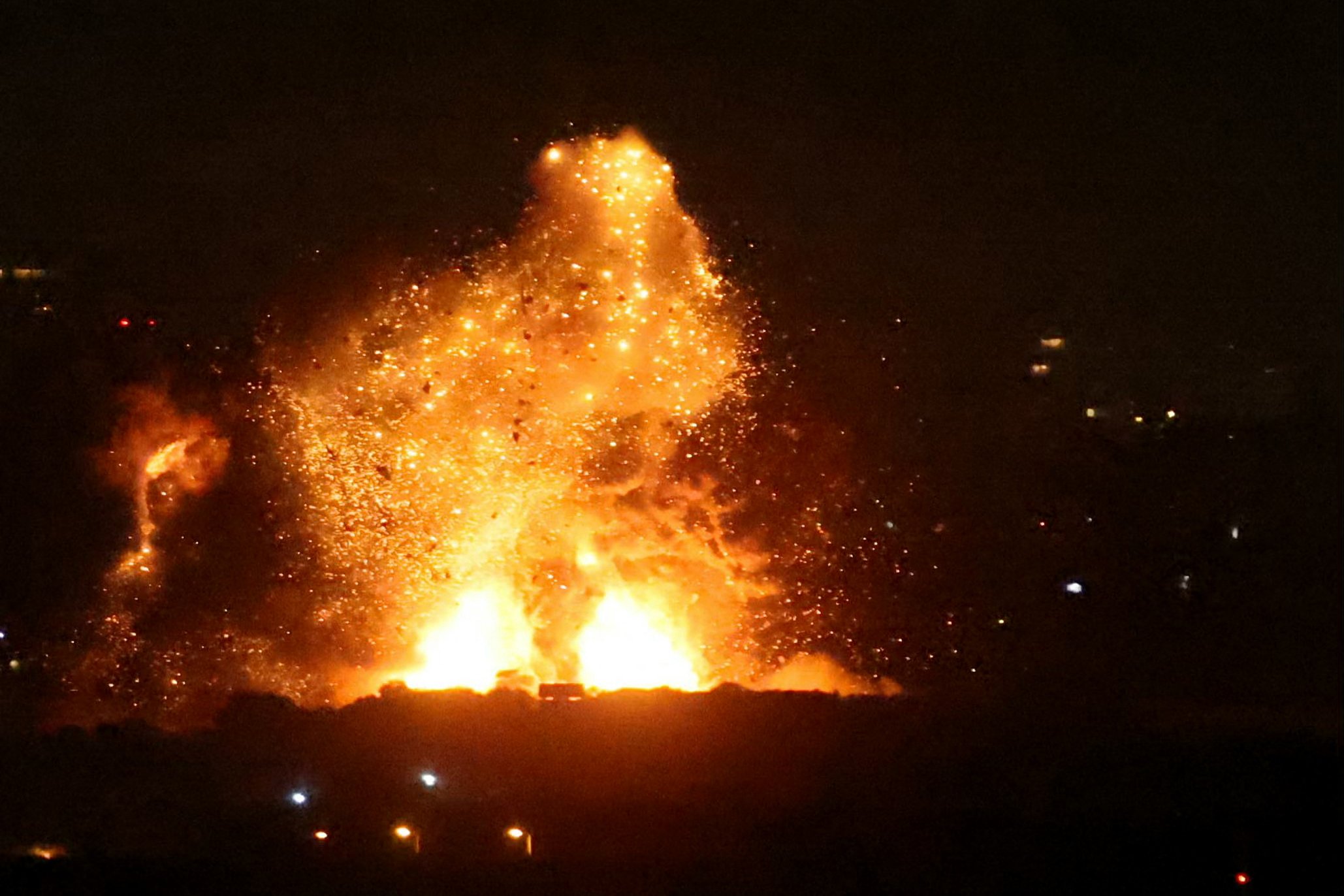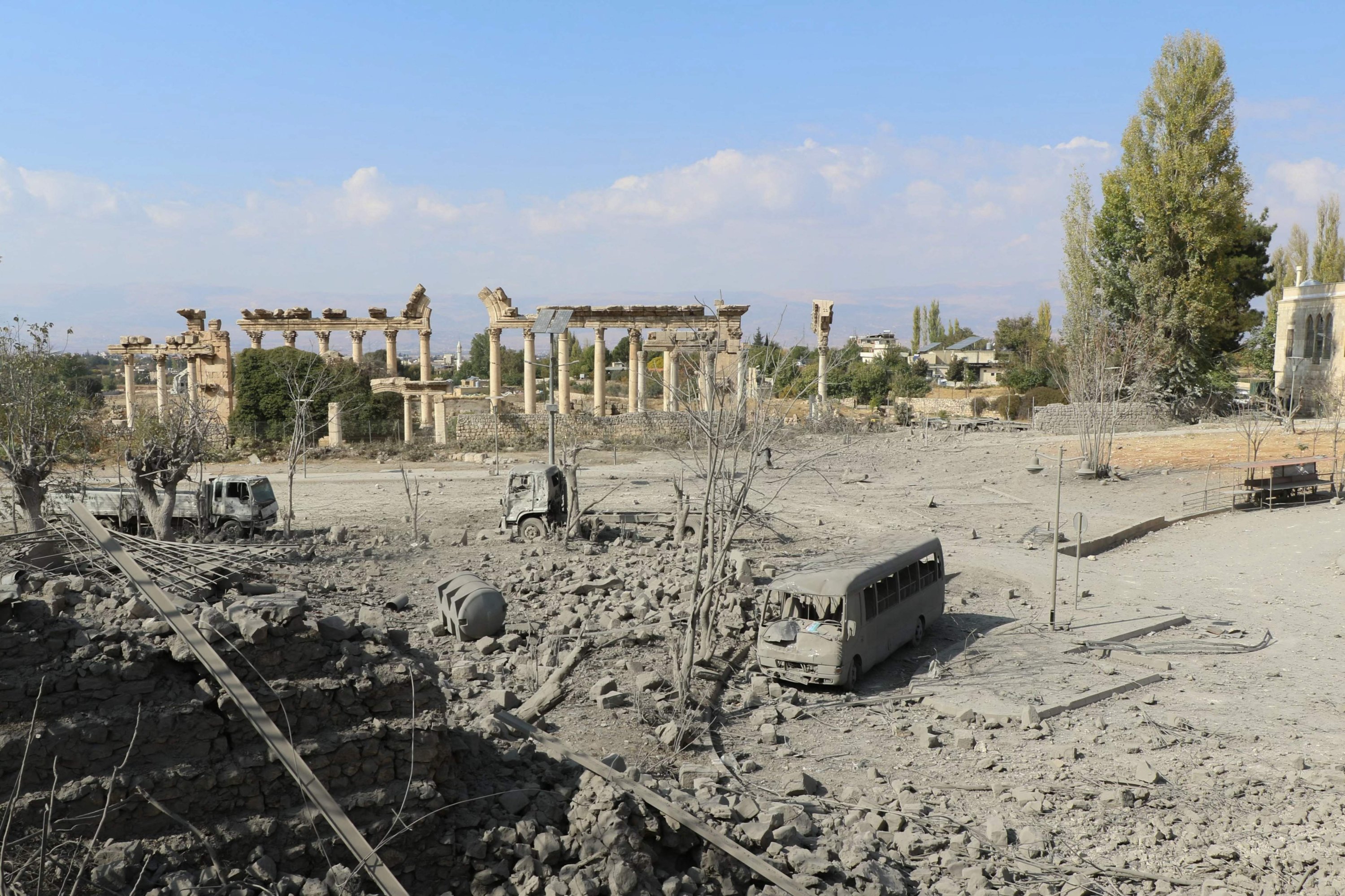© Turkuvaz Haberleşme ve Yayıncılık 2026
Israeli airstrikes battered south Beirut, a Hezbollah stronghold, on Thursday, a day after killing at least 40 people in eastern Lebanon's Beka Valley.
The pre-dawn raids came after Hezbollah claimed a slew of attacks on Israel, including a missile strike targeting a military base near Israel's Ben Gurion International Airport.
Earlier Wednesday, the Health Ministry said Israeli strikes on the Bekaa Valley and the densely populated ancient city of Baalbek in east Lebanon killed at least 40 people.
Hezbollah and Israel have been at war since late September when Israel broadened the Gaza war to its northern border.
Hezbollah began low-intensity strikes on Israel last year, in support of its Palestinian ally Hamas following the Oct. 7, 2023 incursion.
One of the strikes fell near the Beirut airport, causing heavy damage to a heater factory warehouse, according to media reports.
Transport Minister Ali Hamie said the airport continued to operate as normal, with planes taking off and landing with no issue.
The raid caused minor damage to some of the airport's buildings, including flag carrier Middle East Airlines' premises.
The terminal building was safe, an airport official told Agence France-Presse (AFP) on condition of anonymity because he was not authorized to speak to the media.
Abu Elie, a taxi driver, was at the airport when the strikes hit.

"The entire car park shook. People were carrying their suitcases on their shoulders and running," he said.
"When I made it to the street, there was so much smoke I had to turn the headlights on."
While some in Lebanon had hoped Tuesday's U.S. presidential election might offer a reprieve, Hezbollah's leader said in a speech broadcast Wednesday that the vote would have no bearing on the future of the conflict.
He also warned that Hezbollah had tens of thousands of trained members ready to fight and that nowhere in Israel was "off-limits" to attacks.
Israel's airports authority said Wednesday that operations at its main airport near commercial hub Tel Aviv were not affected after Hezbollah claimed it fired missiles at a nearby military base.
Prime Minister Benjamin Netanyahu, who has vowed to keep fighting Hamas and Hezbollah until victory, spoke to U.S. President-elect Donald Trump on Wednesday and discussed with him the threat posed by the group's main backer Iran.
"The conversation was warm and cordial. The prime minister congratulated Trump on his election victory, and the two agreed to work together for Israel's security. The two also discussed the Iranian threat," Netanyahu's office said.
In Lebanon, the overnight strikes on Beirut's southern suburbs were so intense many residents of the city were unable to sleep.
"We've had to flee our homes several times. Sometimes we sleep in the car," said Ramzi Zaiter, a resident of south Beirut.
"Death has become a matter of luck. We can either die or survive."

Since Sept. 23, more than 2,600 people have been killed in Israeli strikes on Lebanon, according to Health Minister Firass Abiad.
Many in Lebanon and beyond had been awaiting the result of the U.S. election to gauge whether there was any hope the war could end soon.
But Hezbollah's Qassem said in his speech: "We don't base our expectations for a halt of the aggression on political developments."
For its part, Hezbollah's main backer Iran said Thursday that Trump's election win could be a chance for the United States to reassess past "wrong policies."
"We have very bitter experiences with the policies and approaches of different U.S. governments in the past," foreign ministry spokesperson, Esmaeil Baghaei, was quoted as saying by state news agency IRNA.
Iran and the United States have been adversaries since the 1979 Islamic Revolution, which overthrew the Western-backed shah, but tensions peaked during Trump's first term from 2017 to 2021.
Tareq Hamad, a man displaced by the war from his south Lebanon village Kfar Kila, was cautious.
Trump "had said that if he wins, he would work toward a cease-fire. But these are just words," he told AFP.
